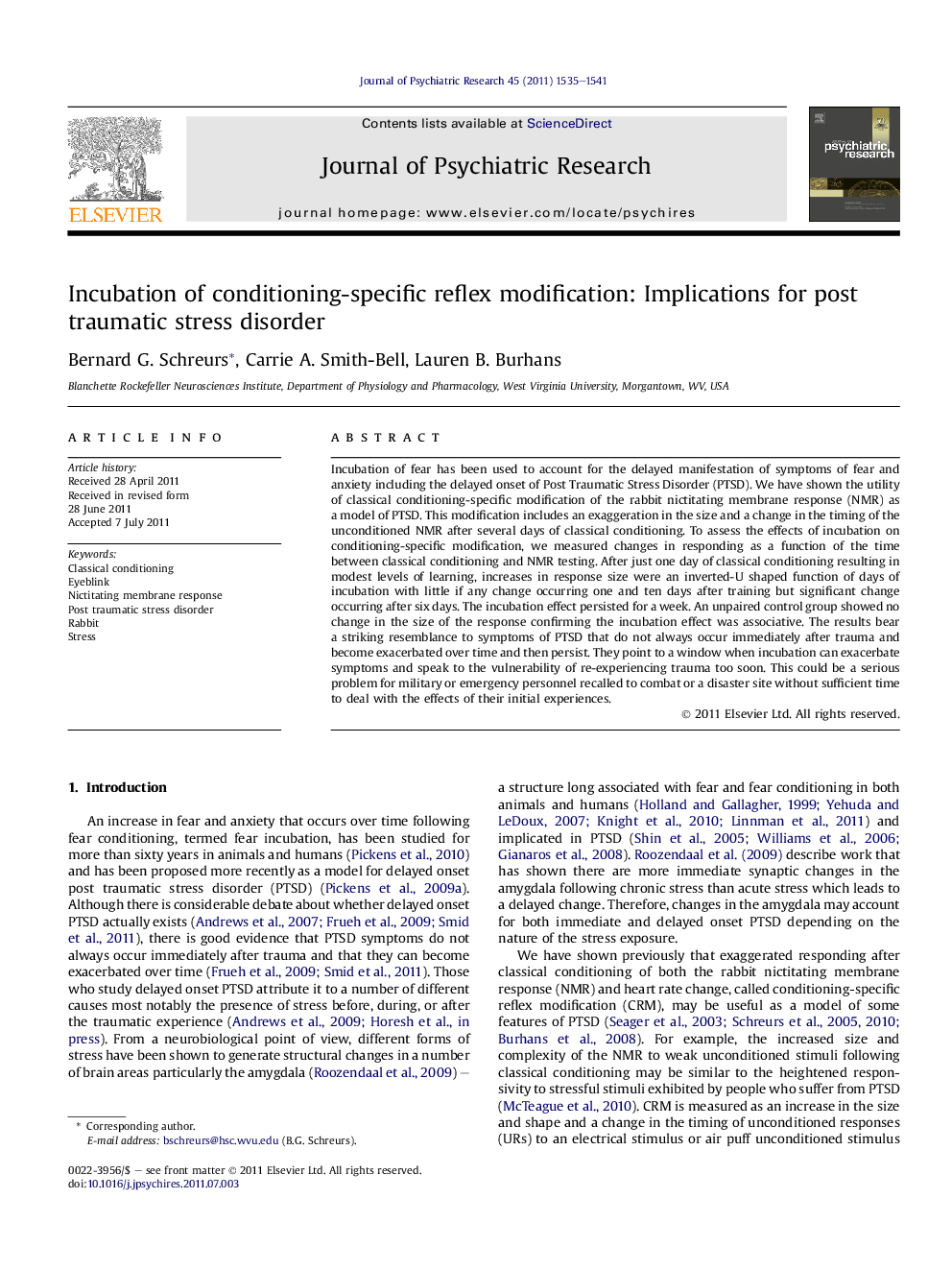| کد مقاله | کد نشریه | سال انتشار | مقاله انگلیسی | نسخه تمام متن |
|---|---|---|---|---|
| 327937 | 543024 | 2011 | 7 صفحه PDF | دانلود رایگان |

Incubation of fear has been used to account for the delayed manifestation of symptoms of fear and anxiety including the delayed onset of Post Traumatic Stress Disorder (PTSD). We have shown the utility of classical conditioning-specific modification of the rabbit nictitating membrane response (NMR) as a model of PTSD. This modification includes an exaggeration in the size and a change in the timing of the unconditioned NMR after several days of classical conditioning. To assess the effects of incubation on conditioning-specific modification, we measured changes in responding as a function of the time between classical conditioning and NMR testing. After just one day of classical conditioning resulting in modest levels of learning, increases in response size were an inverted-U shaped function of days of incubation with little if any change occurring one and ten days after training but significant change occurring after six days. The incubation effect persisted for a week. An unpaired control group showed no change in the size of the response confirming the incubation effect was associative. The results bear a striking resemblance to symptoms of PTSD that do not always occur immediately after trauma and become exacerbated over time and then persist. They point to a window when incubation can exacerbate symptoms and speak to the vulnerability of re-experiencing trauma too soon. This could be a serious problem for military or emergency personnel recalled to combat or a disaster site without sufficient time to deal with the effects of their initial experiences.
Journal: Journal of Psychiatric Research - Volume 45, Issue 11, November 2011, Pages 1535–1541